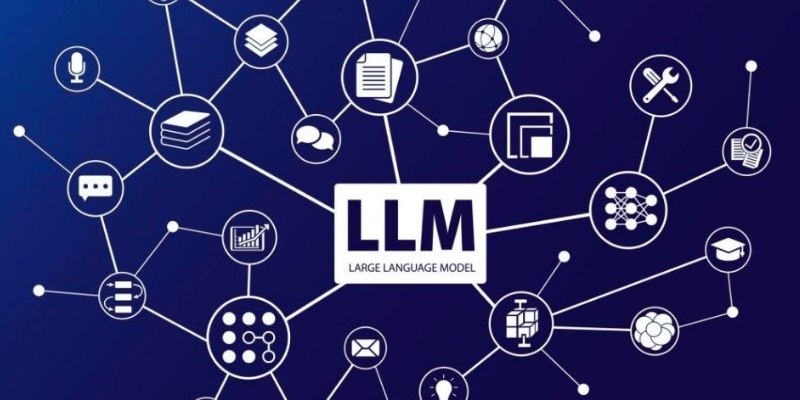AI (artificial intelligence) isn't just an idea from the future; it's now one of the best ways for businesses to grow. AI is being used by businesses of all kinds to make more money, cut costs, and make smarter choices. AI can help businesses make more money in many ways, such as through personalized marketing and better inventory management. This post talks about the best ways that AI can directly affect your income, no matter if you're a new business or an old one.
AI-Powered Sales Strategies
One of the most direct ways AI contributes to revenue growth is by optimizing the sales process. Businesses can now rely on AI to analyze customer data, score leads, and even predict which prospects are most likely to convert. It reduces wasted time and ensures the sales team is focused on high-potential opportunities.
Key benefits of AI in sales include:
- Automated lead scoring based on historical behavior
- Real-time suggestions for next-best actions
- Sales forecasting using machine learning algorithms
- Conversation analysis from recorded calls to improve messaging
These tools allow businesses to accelerate their sales cycles while improving the quality of engagements with potential customers. The result is not just faster sales—but better sales.
Marketing Made Smarter with AI

Marketing departments are leveraging AI to create more personalized, data-driven campaigns that connect with customers more effectively. By understanding behavior, preferences, and timing, AI enables marketers to reach the right audience with the right message. Even small businesses now use AI tools to automate content creation, email campaigns, and social media posting—all of which help in engaging customers and boosting conversions.
AI-driven marketing tools assist businesses in the following:
- Predicting customer preferences
- Creating customized email and ad content
- Testing and optimizing campaigns automatically
- Analyzing performance across multiple channels
AI in marketing ensures businesses spend their budget wisely and achieve higher returns on investment. For companies aiming for growth, this shift is crucial.
Enhancing Customer Experience with AI
Customer experience impacts revenue. Happy customers are more likely to return, refer others, and leave positive reviews. AI enhances customer service through chatbots, virtual assistants, and sentiment analysis tools that monitor customer satisfaction in real time. By offering 24/7 support and personalized interactions, companies can meet customer needs faster and more accurately.
Common AI tools used for customer service include:
- Chatbots for handling FAQs and basic support
- AI voice assistants for phone-based interactions
- Sentiment analysis to gauge customer emotions
- Recommendation engines for personalized product suggestions
When customers feel valued and understood, they are more likely to spend more—making AI a key revenue driver in this area.
AI in Dynamic Pricing and Revenue Optimization
Dynamic pricing, powered by AI, allows businesses to adjust their pricing in real-time based on demand, competition, and customer behavior. It is especially important for industries such as retail, travel, and e-commerce, where margins are tight and competition is fierce. AI systems can analyze thousands of data points to determine the most profitable pricing strategy at any given moment.
With AI, businesses can:
- Track competitor pricing automatically
- Adjust prices based on customer willingness to pay
- Test pricing strategies for different segments
- Maximize profit without losing customers
By pricing smarter, companies ensure they capture maximum value from every sale.
Automating Operations for Greater Efficiency
AI doesn’t only help with front-end tasks like sales and marketing—it also improves back-end operations. Automation of repetitive and time-consuming processes allows employees to focus on higher-value activities that contribute directly to revenue.
Examples of operational automation with AI:
- Auto-generation of invoices and financial reports
- Smart inventory restocking based on demand predictions
- Resume sorting and interview scheduling in HR
- Workflow optimization in project management
Reducing manual errors and increasing operational efficiency can free up significant resources, leading to faster project delivery and cost savings—both of which positively impact revenue.
AI and Predictive Analytics for Business Strategy

Predictive analytics uses historical data and machine learning to forecast future outcomes. For business leaders, this means more informed decision-making around product development, inventory planning, and customer behavior.
AI-powered predictive analytics helps in:
- Forecasting sales and customer demand
- Identifying new market opportunities
- Spotting at-risk customers or revenue leaks
- Aligning resources with projected needs
Having accurate predictions helps businesses respond faster and more strategically to changes, giving them a competitive edge in driving growth.
Product Development Guided by AI
Product teams are also using AI to create better solutions. By analyzing customer feedback, usage data, and market trends, AI can help businesses identify what features are in demand and how to improve current offerings.
AI supports product innovation by:
- Analyzing online reviews and user feedback
- Simulating product performance before release
- Detecting quality issues during development
- Customizing features for different user segments
This type of insight-driven development can significantly improve a product’s success in the market and, in turn, increase overall revenue.
Risk Management and Fraud Detection
Fraud and operational risks can be costly to a business. AI can help minimize these risks by detecting suspicious activities early and alerting the company before damage is done.
AI tools for risk management offer:
- Real-time fraud detection in transactions
- Identity verification and authentication systems
- Pattern recognition to flag irregular behavior
- Financial modeling to test worst-case scenarios
Protecting the business from loss is just as important as growing income—and AI plays a critical role on both sides.
Conclusion
AI is reshaping how businesses drive revenue across every department. From smarter sales and marketing to better customer service, it enables more targeted, efficient strategies. Companies using AI can improve decision-making, reduce costs, and personalize experiences at scale. It also helps in predicting trends, optimizing pricing, and automating repetitive tasks. These benefits not only enhance operations but directly contribute to revenue growth. As competition grows, adopting AI becomes a necessity rather than a luxury. Businesses that invest in AI now will lead the market tomorrow.











